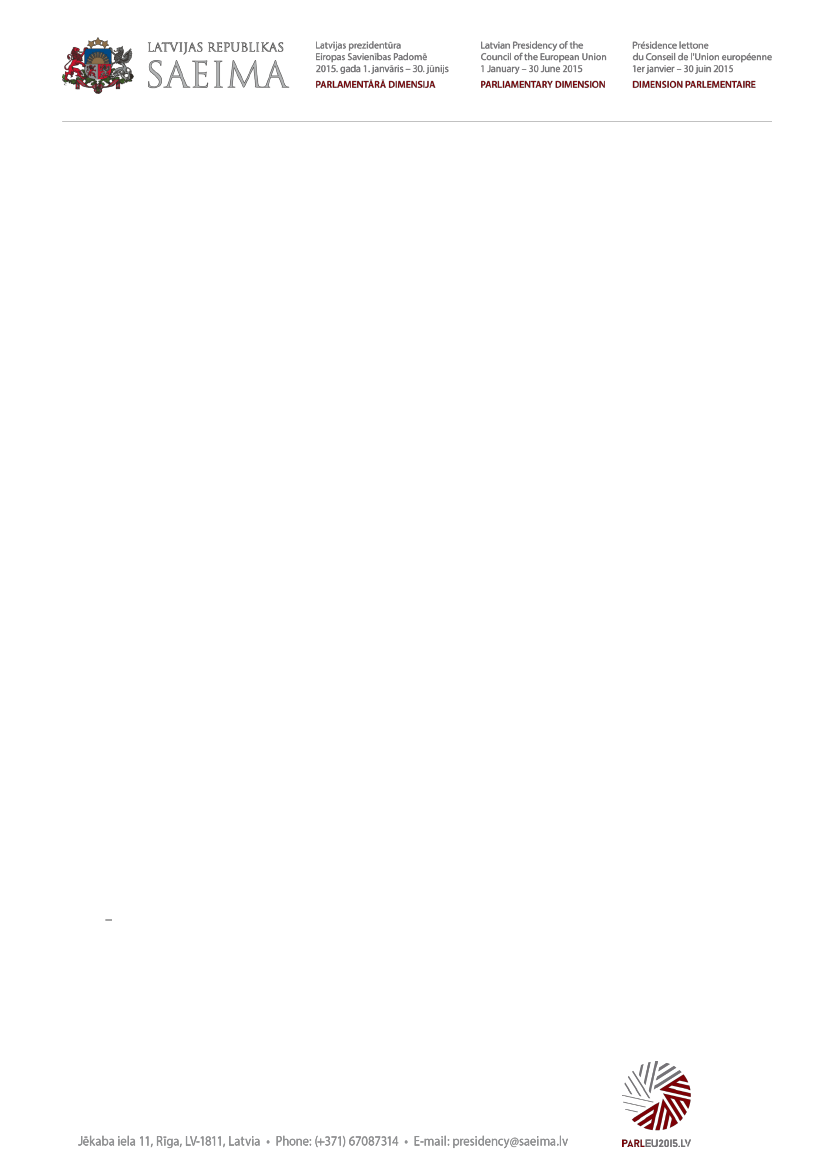
1
Contribution of the LIII COSAC
Riga, 31 May – 2 June 2015
1. EU Energy and Climate Policy
1.1. COSAC recognises the outstanding nature of challenges associated with the energy sector in the EU,
in particular the high dependency of EU Member States on imported energy resources, and therefore
emphasises the importance of solidarity, trust and enhanced coordination in dealing with risks and
challenges.
1.2. COSAC emphasises the key importance of optimising energy flows and energy consumption, as
increased energy efficiency has a key role in reaching this goal. Moderation of energy demand, as well as
treating energy efficiency as an energy source in its own right, are keys to achieving the energy policy goals
of the EU. Furthermore, higher energy efficiency contributes to the reduction of greenhouse gas emissions
and to achieving the EU’s climate targets, the importance of which cannot be stressed enough ahead of the
2015 UN climate change negotiations in Paris.
1.3. Underscoring the importance of climate-related actions, COSAC welcomes the suggested framework
for a transparent and dynamic global agreement, containing fair and ambitious commitments from all
Parties based on evolving global economic and geopolitical circumstances set forth in the Communication
of the Commission entitled
The Paris Protocol – A blueprint for tackling global climate change beyond
2020
that was tabled together with the Energy Union framework and refers to decarbonisation of the
economy as a whole. Further efforts are needed to de-couple economic growth from energy consumption,
including by using regulatory instruments at the Union level.
1.4. COSAC notes the role of research and technological innovation in boosting the competitiveness of
Europe’s energy sector and the economy as a whole. Moreover, new solutions which enable for more
efficient use of renewable energy resources, as well as the application of smart technologies to the
production, supply and balancing of energy demand and supply, should be the key elements of the EU’s
future energy landscape. Distributed energy production should be encouraged and supported while keeping
fine balance between fixed and market-based support mechanisms and taking into account market
penetration of particular energy technologies.
1.5. COSAC acknowledges that a fully integrated European energy market can be achieved only through
proactive and simultaneous development of energy infrastructures, as well as the implementation and
application of EU energy regulations. Some Member States can still be regarded as energy islands and
therefore require particular attention, including financing, to end their isolation from the EU energy
markets. Therefore, COSAC calls upon the European Commission to take steps that will facilitate
development of necessary interconnections, and strongly encourages Member States to implement the EU
legislation that sets the framework for introduction of a fully and effectively functioning internal energy
market for electricity and natural gas. The better and the more efficiently an increasingly integrated EU-
wide energy market operates, the better the odds of protecting energy consumers and alleviating energy
poverty. COSAC notes the importance of the EU Member States reviewing and diversifying their energy
supplies from third countries.